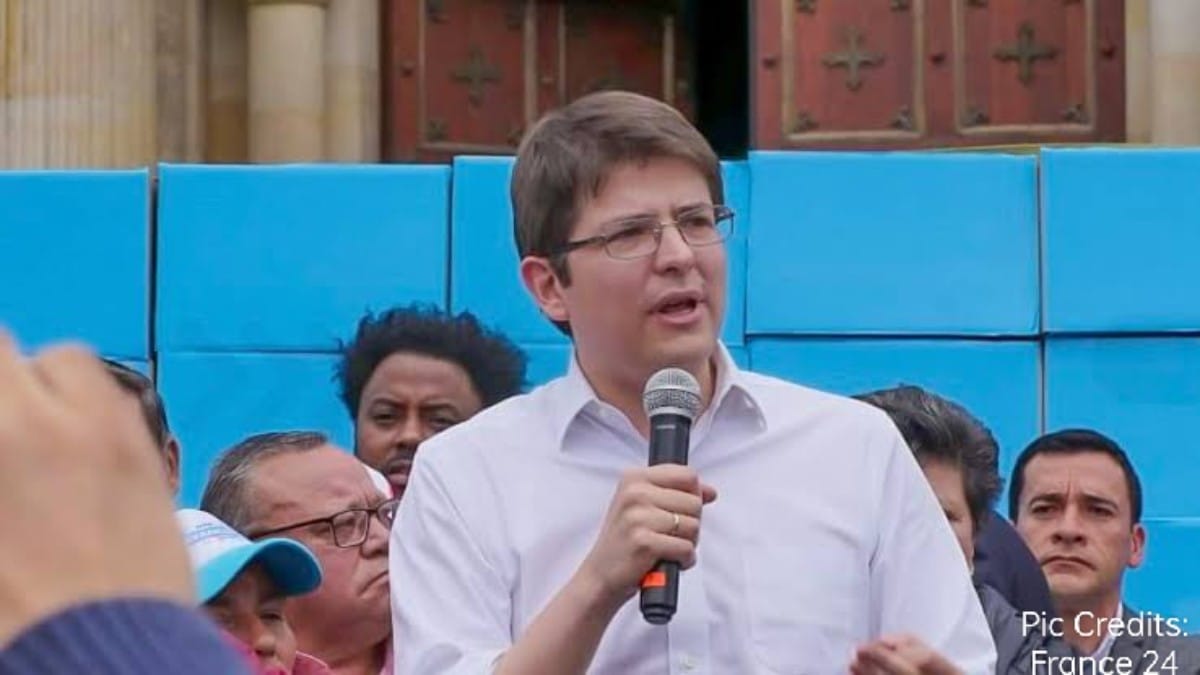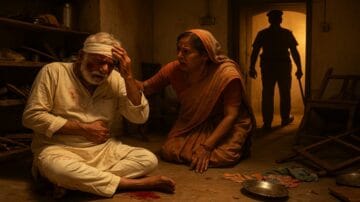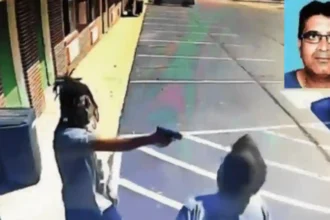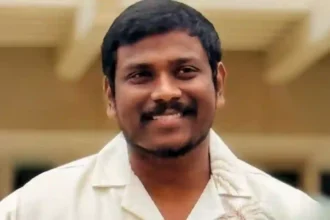
On a bright June afternoon in Bogotá, the atmosphere at El Golfito Park was electric. Supporters waved flags, chanted slogans, and leaned forward to hear every word from the man they believed could lead Colombia into a new era. That man was Miguel Uribe Turbay, a dynamic presidential candidate whose life story was intertwined with both privilege and profound tragedy.
But in a flash, the air was pierced by the sound of gunfire. The crowd screamed, security rushed forward, and the hope that Miguel Uribe carried for millions was suddenly shattered. Two months later, on August 11, 2025, the nation awoke to the heartbreaking news: Miguel Uribe had succumbed to complications from the wounds he sustained in that attack.
A Legacy Carved in Politics and Pain
To understand Miguel Uribe, one must first look at his lineage. Born on January 28, 1986, in Bogotá, Miguel belonged to one of Colombia’s most prominent political families. His maternal grandfather, Julio César Turbay Ayala, served as Colombia’s 25th president from 1978 to 1982. From an early age, politics was not just a career option it was part of his DNA.
Yet, his family history was also marked by tragedy. His mother, Diana Turbay, was a celebrated journalist whose commitment to truth and storytelling inspired many. In 1990, she was kidnapped by Pablo Escobar’s Medellín Cartel, an event that gripped the nation. A year later, during a botched rescue mission, Diana was killed. Miguel Uribe was only a child when this happened, but the loss became a defining moment in his life instilling in him a deep understanding of Colombia’s struggles with violence, corruption, and insecurity.
Raised by his father, Miguel Uribe Londoño, a respected politician who served as Bogotá’s councilor and later a Conservative Party senator, young Miguel grew up surrounded by debates on governance, justice, and reform. His upbringing was one of privilege, but it was also shadowed by the painful reminder of the cost of political violence.
Rise of a Young Leader
Armed with degrees in law and public policy from Universidad de los Andes and a master’s in public administration from Harvard’s Kennedy School, Miguel Uribe entered public life with both academic credentials and a personal mission.
He began as a Bogotá city councilor (2012–2015), quickly making a name for himself as a reform minded politician who focused on transparency and security. In 2016, he was appointed as Bogotá’s government secretary, where he pushed initiatives aimed at urban safety and improved governance.
In 2022, Miguel Uribe was elected to the Senate under the Democratic Centre party. His speeches often reflected a belief that without safety, no society can progress an ethos rooted in both his family history and Colombia’s enduring challenges. By March 2025, his presidential ambitions became official, and he launched his campaign for the 2026 elections, promising a Colombia where opportunity was not just for the privileged few, but for every citizen.
June 7: The Day That Changed Everything
On June 7, 2025, Miguel Uribe was in Fontibón, Bogotá, addressing a crowd of supporters. It was supposed to be another routine stop on his campaign trail a chance to connect with the public and share his vision.
But as he greeted people and prepared to speak, a teenage gunman opened fire. The shooter, reportedly 14 years old, fired multiple rounds from a 9 mm pistol, hitting Miguel in the head and upper body. Chaos erupted. Supporters ducked for cover, and security personnel rushed him to Clínica Fundación Santa Fe de Bogotá.
Doctors performed emergency neurosurgery and other critical procedures. The nation watched anxiously as updates trickled in sometimes hopeful, often grim. Over the next two months, he fought valiantly for his life, enduring complications, including cerebral hemorrhages. On August 10, his condition worsened dramatically. In the early hours of August 11, at just 39 years old, Miguel Uribe passed away.
Echoes of Colombia’s Dark Past
The assassination attempt and eventual death of Miguel Uribe brought back haunting memories of the political violence that gripped Colombia in the 1980s and 1990s. Many recalled the killings of presidential candidates like Luis Carlos Galán, Bernardo Jaramillo, and Carlos Pizarro, whose deaths were linked to narcotrafficking and armed conflict.
President Gustavo Petro called Uribe’s killing “a defeat for democracy,” and political leaders across the spectrum condemned the act. International figures from the United States to the United Nations expressed outrage and urged Colombian authorities to ensure justice.
The Investigation and Arrests
Within days of the attack, authorities arrested the teenage shooter. Further investigations revealed possible links to organized crime, with speculation about whether the killing was politically motivated or part of a broader destabilization effort. Several suspects, including alleged planners, were detained.
The weapon used was reportedly traced back to a legal purchase in the United States, sparking debates on international arms trafficking into Colombia. The government also announced enhanced security measures for presidential candidates as the 2026 elections draw closer.
The Man Behind the Public Image
Beyond the podium and policy debates, Miguel Uribe was a devoted family man. Married to María Claudia Tarazona, he was a father to one biological son and three adopted daughters. Those close to him describe a man who could balance political ambition with a deep commitment to his family.
In her emotional tribute, María Claudia wrote:
“You will always be the love of my life. Rest in peace, my love. I promise to care for our children and keep your dream for Colombia alive.”
A Nation Mourns and Reflects
Colombia declared three days of national mourning following his death. Vigils were held across Bogotá, with thousands lighting candles and holding signs bearing his image. For many, Miguel Uribe represented a new generation of leadership one that was unafraid to confront crime but also deeply committed to social reform.
His death leaves a void not just in the political landscape but in the hearts of Colombians who saw in him a possibility for a better future. The tragedy has also reignited debates about political violence, inequality, and the dangers faced by public figures in Colombia.
The End of a Chapter, the Start of a Challenge
As Colombia moves toward the 2026 presidential election, the loss of Miguel Uribe serves as both a warning and a rallying cry. His story a blend of privilege, tragedy, resilience, and hope reflects the contradictions of Colombia itself.
While his life was cut short, the ideals Miguel Uribe championed continue to resonate. His journey reminds the nation that the fight for security, justice, and opportunity is far from over and that the cost of silence in the face of violence is too high to bear.
Stay connected with The News Drill for more updates. Stay informed. Stay updated. Stay Ahead.
Contact us: contact@thenewsdrill.com
Submit a tip or story: editor@thenewsdrill.com or visit our Contributor Page.
















